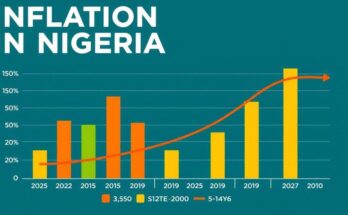VAST-Ghana has called for the uncapping of the National Health Insurance Levy (NHIL) to alleviate financial pressure on the National Health Insurance Scheme (NHIS). The proposal includes amending the capping law and revising betting and excise taxes on unhealthy products. These measures aim to generate additional revenues for health initiatives, particularly addressing non-communicable diseases (NCDs).
The Vision for Accelerated Sustainable Development – Ghana (VAST-Ghana) has advised the government to uncap the National Health Insurance Levy (NHIL) to alleviate the financial burden on the National Health Insurance Scheme (NHIS). According to VAST-Ghana, uncapping the NHIL, as previously promised by President, would provide vital funding to support the NHIS and reduce costs for patients.
Mr. Labram Musah, Executive Director of VAST-Ghana and National Coordinator of the Ghana NCD Alliance, stressed the need for the government to amend the earmarked Funds Capping and Realignment Act (Act 947) for better resource allocation. At present, the NHIS is not receiving its total NHIL allocation due to existing capping laws, with less than 60 percent of the NHIS budget mainly directed towards claim payments.
VAST-Ghana noted that uncapping the NHIL would significantly benefit individuals suffering from non-communicable diseases (NCDs), who face escalating costs for medications and treatments. The statement described the cap as detrimental, undermining potential revenue for effective NHIS operations and exerting further strain on patients experiencing NCD-related financial challenges.
Furthermore, the organization suggested revising the betting tax in the 2025 budget to address rising gambling issues, particularly among youths. The proliferation of sports betting is creating a public health crisis, leading to increased mental health disorders and social instability, all of which contribute to rising NCD cases.
The statement also advocated for a review of excise taxes on unhealthy products like tobacco, alcohol, and sugary beverages to keep up with inflation, as recent taxes have not been adequately adjusted. The Ghana Revenue Authority (GRA) reported notable increases in revenue from these taxes, with a substantial rise in excise tax collection following the introduction of new measures in 2023.
VAST-Ghana proposed that a fraction of excise tax revenue should be allocated to support health initiatives, specifically focused on combating NCDs. They expressed appreciation for President John Dramani Mahama’s impending establishment of the Ghana Medical Trust Fund, dedicated to financing NCD treatments. This fund is crucial, given that NCDs account for a significant percentage of global and national deaths.
Finally, the government is urged to repurpose the COVID fund to provide further support for NCD-related initiatives and the Ghana Medical Trust Fund.
In conclusion, VAST-Ghana has strongly recommended uncapping the NHIL to provide much-needed financial relief to the NHIS, thereby assisting patients, particularly those suffering from NCDs. The organization also underscored strategies to enhance funding through tax revisions and allocation towards health interventions. With rising NCD-related challenges, it is imperative for the government to consider these recommendations to safeguard public health and enhance the effectiveness of the healthcare system in Ghana.
Original Source: www.ghanabusinessnews.com




